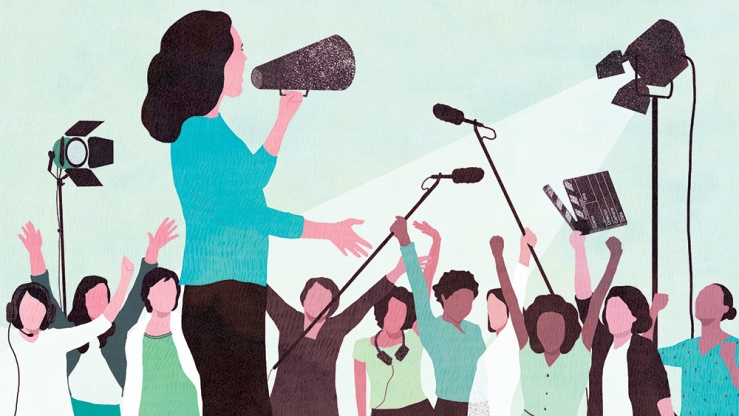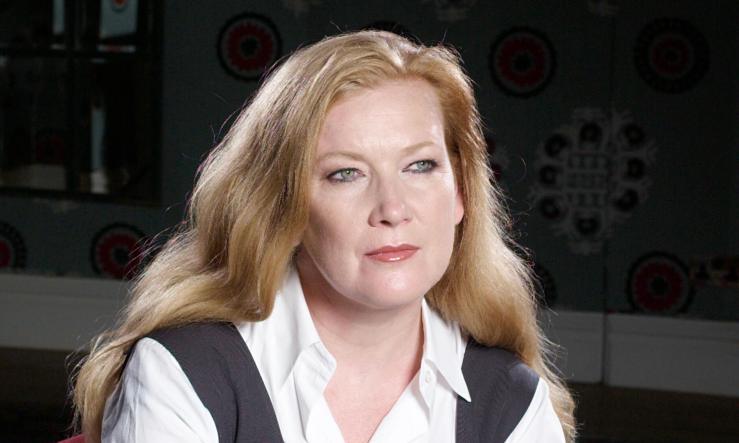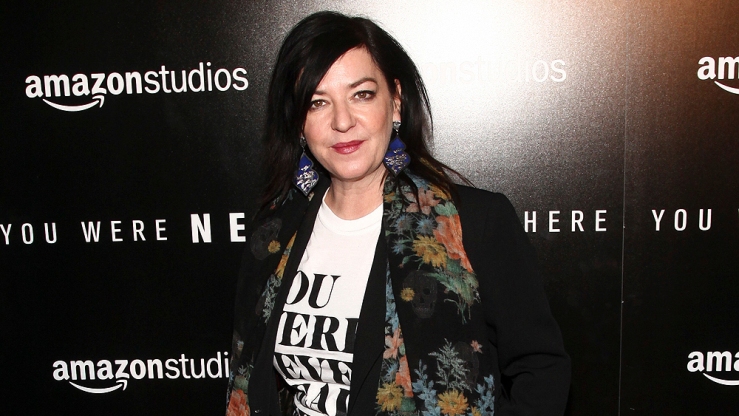
Credit: Yasmine Gateau for Variety
In light of International Women’s Day and the recent Academy Awards I wanted to take a moment to pay homage and celebrate all of the amazing and wonderful women in the film industry. It is still considered very much a boys’ club with the Academy itself being 77% male and women only making up 4.6% of major studio films as of 2015 – I think the phrase most appropriate here is ‘disappointed, but not surprised’.
Hollywood needs to become more inclusive and allow art to be valued as art, not to discriminate against the creators due to who they are. Viola Davis, American actress and producer, was the first black woman to win an Emmy, Tony and an Oscar for acting (the ultimate triple threat) and used her acceptance speech to shed light on the topic of diversity. Davis stated “the only thing that separates women of colour from anyone else is opportunity.”
The only thing that separates women of colour from anyone else is opportunity.
Last year was the first time a female cinematographer, Rachel Morrison, was nominated for an Oscar. This amplifies the shameful divide still seen today in the film industry but helps to give hope to future talent.
With this all in mind, I wanted to just stop, think of, and appreciate these woman making incredible art and paving the way for future talent. If you’re looking to feel inspired or need something new to watch, here are a few pieces I would recommend all by women who are changing the game.
Andrea Arnold – English director, writer and former actress

Writer and Director of Fish Tank (2009), the story of a 15 year old girl who lives with her mother discovering what it is like to grow up and establish her identity as a woman, daughter and sister. Fish Tank won Arnold the award for the Best British film of 2009 at the BAFTAs. Among her other works; her 2006 debut feature film Red Road, a thriller following the life of a CCTV security operator in Scotland, and American Honey, a 2016 road trip and coming-of-age film set in the US. Her films tend to explore different characterizations of women.
Lynne Ramsay – Scottish director, producer, writer and cinematographer

Writer and director of Ratcatcher (1999), a drama which won Ramsay the Carl Foreman Award for Newcomer in British Film at the BAFTAs although never receiving wide cinematic release. Other releases include dark drama We Need To Talk About Kevin (2011) and psychological crime thriller You Were Never Really Here (2017). Her work has recurring themes of death, grief and guilt and a fascination with young people, focusing more heavily on imagery than dialogue.
Wanuri Kahiu – Kenyan director and producer

Previously working on The Italian Job (2003), Kahiu went on to direct works such as her debut feature film drama From a Whisper (2008), portraying the realistic story of the aftermath of the August 7th terrorist bombing in Kenya 1998 and short sci-fi film Pumzi (2009) following the lives of the East African Territory community after World War III. Rafiki, her 2018 drama film about two female friends turned lovers was banned in Kenya due to its homosexual theme contrary to the law against gay relationships and sex, met with international outrage.
Ana Lily Amirpour – American-Iranian director, screenwriter, producer and actor

Her debut feature film A Girl Walks Home Alone at Night (2014), self-described “Iranian Vampire Spaghetti Western” has received critical acclaim and praise for its imagery, tone and its feminist themes. More recent releases include the black comedy thriller The Bad Batch (2016), directing an episode of Castle Rock and upcoming feature film Blood Moon (TBA).
Marjane Satrapi – Iranian-French director

Satrapi, based off her autobiographical graphic novel, co-wrote and co-directed animated feature film Persepolis (2007), following her life growing up during the Iranian Revolution. Satrapi was the first woman to be nominated for Best Animated Feature at the Academy Awards. In 2011, Chicken with Plums, another co-production based on an existing graphic novel was released, an animated drama following and reflecting the life of a musician on his deathbed. Black comedy horror film The Voices (2014) was also directed by Satrapi, following the life of an upbeat man called Jerry who suffers from schizophrenia and chooses against taking his medication, resulting in delusions and violent thoughts.
As a film student I want to express how much these women (and many others) inspire me and prove that the film industry needs pieces of work from people from all different backgrounds and walks of life.
Great article about Women in the film industry, very inspiring and insightful!
LikeLiked by 1 person
Thanks Molly!
LikeLike